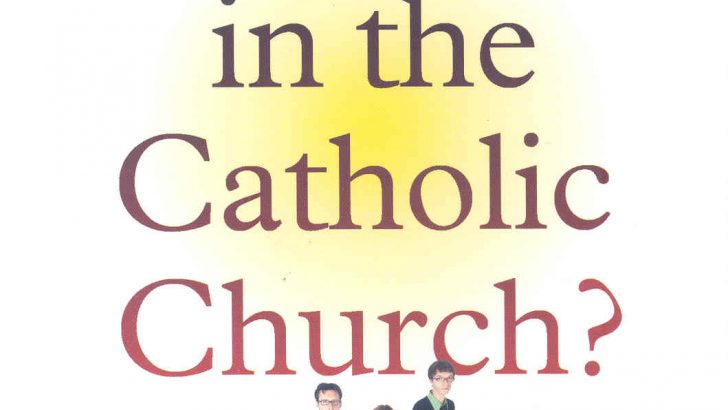Can I Stay in the Church?
By Brian Lennon SJ (Columba Press, €12.99 / £10.83)
This is a question which many people, aside from media personalities, must be asking themselves.
The last couple of decades have certainly shaken many people’s faith and adherence. But being a Catholic is not entirely a matter of being in some kind of exclusive club.
It is surely as much about a personal encounter, which will be different for everyone, with the divine, not as a generality, but through the person of Jesus Christ in the Gospels.
That, at least, is the essential teaching of Christianity. Everything else — church organisation, details of liturgy, canon law, the structures of hierarchy and reporting back to Rome, the influence of parish priests — all of that is purely secondary.
Rather than let themselves be perplexed by the cruelties and iniquities of some clergy and lay folk (for laity are as much to blame as the clergy), Catholics should concern themselves with religious essentials and not with organisational appearances.
This book, the author says, was prompted by tto things — the election of the present Pope and the reports of abuse. It drove him back to ask essentials questions: is there a god, and if so, who is god, and what are our relations with him.
The problems arise not from the nature of belief as from the structures themselves. These as he points out were different in the past — especially in the early church — and can be, will be different in the future.
He calls on the ‘people of God’, that form of words from Vatican II, which so many took to their hearts, a call for the restoration of justice and respect within that body.
This involves, it seems to this reviewer, a recognition by all, by parishioners, by clergy and by the media, that the Church is not the hierarchy and the clergy, it is the people themselves. They are the Church.
They have not committed these crimes that we all lament. They can move forward, but only with a clear recognition for a new beginning.
Fr Lennon concludes with a call for a new Ecumenical Council. Let us hope it is not to be Vatican III, but Buenos Aires or Manila I.
Councils were never held in Rome until the mid-19th Century when the modern model of the pontifical rule became established, thanks to the invention of the steam engine and the electric telegraph. A council held outside Rome would be a real change.
For, of course, Asia, Africa and Latin America are more to the Church than the beleaguered people of Europe and North America.
This book will prove enlightening, even essential reading, for many, couched as it is in clear and vigorous language.


 Peter Costello
Peter Costello
